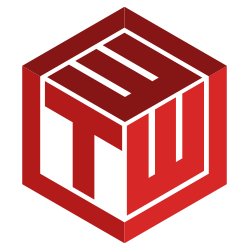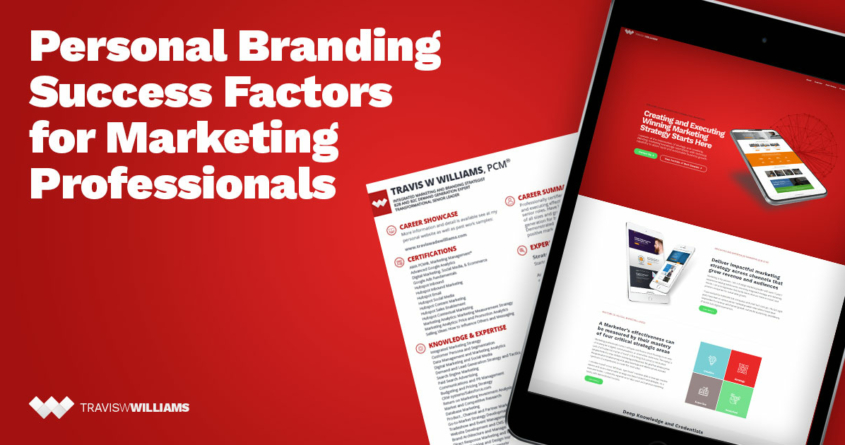Personal Branding Success Factors for Marketing Professionals
Here I am doing something I never really anticipated needing to do in my career—writing blog posts on my own personal experiences. The story unfolds with me being in another job transition. My previous employer made the decision to close the local office in Scottsdale, AZ where I worked but offered me the ability to relocate to retain my position in Kansas City. Unable to uproot my family, I had to sacrifice my position (sacrifice seems like a harsh word) for our life here in the Valley. My wife’s career, daughter’s therapies, and family nearby keep us firmly entrenched and loving it here in the southwest.
The decision was never really a difficult one but I find myself, like many, playing the frustrating waiting game of finding the right role for my next career move. So I set out to do what I do best — create a marketing plan and strategy around my job search and position my offering and capabilities in the market. My hope is that I can help others find success whether they are in a transition or are planning one soon.
Marketing professionals are great at marketing themselves right? The truth is not always. Below are 8 strategies for personal branding success.
Many people would think that a career marketing professional would be great at marketing themselves. As it turns out, many are not. It is one thing to market our company’s products and services but another thing to position ourselves successfully in a competitive talent market. Questions such as “where do I start?”, “what can I do?”, and “how can I truly stand out?” all seem easy to answer until you sit down and put pen to paper.
So I start my personal blogging experience highlighting the importance of treating your personal brand as a business. If you are a fellow marketing professional reading this, perhaps my experience and guidance will help you whether you are thinking about a career move or are currently in one. I try to keep things rather strategic for now and will deep dive into tactical in other posts.
1. Start With an Objective
Yes, you heard that right. You should have an objective in mind when beginning your personal branding journey. Sounds like a Captain Obvious statement but what seemed like a good idea in the beginning can change paths and unravel rather quickly in the real world. Any great marketing campaign starts with a clear and concise objective. This acts as your lantern in the dark, helping illuminate the way through various tactics you can employ that will get you to your end goal. If you find yourself changing your objective often then you might need to ask yourself whether it was the right one to begin with.
2. Market Your Offer Like a Business
If you are like me, you have been heavily involved in your company’s product or services and how to position them successfully in the competitive market. You, yes you are very much like the product or service. You have features, functionalities, a price (commonly referred to as your compensation), a value proposition and so forth. The idea, of course, is to put together a branding and communications strategy that will give you competitive advantage in the talent market. Simply emboldening a resume with some colors and blasting it to various job postings may get you a call but does it really set you apart from the crowd? A marketing professional has a lot of knowledge in a lot of key areas that are considered benefits/advantages to employers. Your goal is to make sure the message and delivery of that message is on point enough to get you further through the hiring manager’s decision funnel.
Everything is practically digital in the majority of our marketing tactics right? You should be capturing your achievements at every stop in your career and showcasing them in various and creative ways.
3. Embrace Digital
As with the statement above, we have to learn a lot of tactics and terminology to be effective as marketing professionals. Like the businesses we run, the digital economy has impacted our ability to position our brand and generate awareness. Think about your personal brand and what channels are available to you to properly position yourself and your capabilities to your right target audience. Most are in digital right? You send a PDF resume to an HRIS system to hopefully get an email response. Several stages further in the process do we actually go offline and have human communications. So this is a critical point to make here. It stands to reason that success in your personal brand is strongly tied to your ability to utilize the digital channels to your advantage. My own experience has taught me to build a personal capabilities website, blog, Linkedin, Twitter, a resume that serves to create traffic to my site, and analytics to monitor how well I am doing. We are generating traffic and awareness and it is all a numbers game.
4. Continue to Seek Opportunities to Learn
Knowledge isn’t stationary, it evolves and adapts to the world around us. Marketing strategy and the tactics that execute it change at a rapid pace. I admit that I felt there was not much more I needed to “prove” with my academic knowledge or skill set that I could bring to an employer. I have shown the ability to drive significant business results and growth at every stop. As I come to be reminded, we are in a feature and benefit world that drives decision makers towards value perception. Continued executive education, niche strategy marketing courses, and certifications are all great ways to add more focused and relevant knowledge that is applicable to your role and creates immediate value.
5. Create Relationships
Relationships are the driving force of purchase decision making and economic growth. A business must have good relationships with their target audience and customers. Employees at a firm must forge good relationships to effectively run a business working together. In personal career branding, relationships create opportunity. Seeking and finding influencers and serving your cause is vital for creating opportunity pipeline. I have been spending time messaging and getting in front of executive placement firms; creating a relationship that will hopefully serve our mutual interests. These relationships create a sense of trust as a candidate they would feel good about putting in front of their hard-earned clients. We can oftentimes find sources of relationships going outside of the direct career channel. Joining your local AMA chapter, technology councils, etc. are all ways to get your message out there and create awareness in your capabilities.
6. Be Self Serving
Let’s be honest, the whole idea and function of a personal career branding strategy is self-serving. It is supposed to be. If it weren’t, it is highly unlikely we would be able to set our skills and experience apart from the rest. This blog article serves the interest of my strategy as I am able to syndicate my thought leadership and content into social media. Likes, shares, and clicks to the website drive traffic where others can learn of my marketing leadership experience and capabilities. The advise here is to not be afraid to serve the needs of your strategy as you would for the company’s product or service you market. Find creative ways to disseminate your message and create positive awareness.
Do not be afraid to gain new skills and give yourself every competitive advantage possible. More critical, however, is never believe that going to such lengths is unnecessary. If you are not doing so, your competition is and will gladly take your place.
7. Quantify Your Career Successes
As consumers, we love numbers and quantification. It helps us realize and rationalize reasons to purchase a particular product or service. They are easily comparable to the competition and if the competition does not have them, it normally puts them at a disadvantage. In personal career branding, the success you as a marketing professional have had driving your critical area of impact should be quantifiable. Everything is practically digital in the majority of our marketing tactics right? You should be capturing your achievements at every stop in your career and showcasing them in various and creative ways. For me, I am like most in that I am very visual. Seeing graphs, bold numbers, and achievements create a very real impact to my sub-conscious. You utilize these strategies on your product sheets and corporate websites; you should be doing this with your personal brand assets as well.
8. Measure and Evolve
Pick a marketing strategy, any strategy and I bet it doesn’t stay the same. It isn’t supposed to after all as we know marketing is at best, a hypothesis and action. Your website or digital campaign can launch, but analysis of results and optimization actions will ultimately dictate how successful it will be in the end. That being said, look for ways to measure digital activity from your personal career branding strategy. If you create a website, make sure to have Google Analytics. Seek qualitative and constructive feedback from your relationships. If interests are mutually aligned, these people want to help you succeed. Can you A/B test aspects of your personal go-to-market strategy? Look for ways to ultimately understand whether your personal branding objective is being realized through data acquisition. Track as much as you can and look at patterns that show where the strategy can use tweaking to produce the results you are seeking.
Conclusion
In summary it is critical for you to embrace that times change rapidly, especially if you had been in a role for many years. The talent marketplace continues to get more competitive every day and you can find yourself getting behind very fast. Treating your career and experience like your business would a product or service is critical to success. Your knowledge are your features, your skills are your functionality, and your experience is your benefit. Viewing them this way ensures you create a marketing strategy for your career and personal brand that will help you achieve your objectives. Do not be afraid to gain new skills and give yourself every competitive advantage possible. More critical, however, is never believe that going to such lengths is unnecessary. If you are not doing so, your competition is and will gladly take your place.

I am a professionally certified marketing executive with 17 years’ progressive experience; including the last eight years in senior-level marketing roles. He has had significant involvement and application in all areas of the marketing function with primary focus on digital strategy and demand generation across B2B and B2C in technology-featured industries. His experience and skill set help execute visionary and transformational marketing strategies for companies that desire to maximize their marketing capability.



